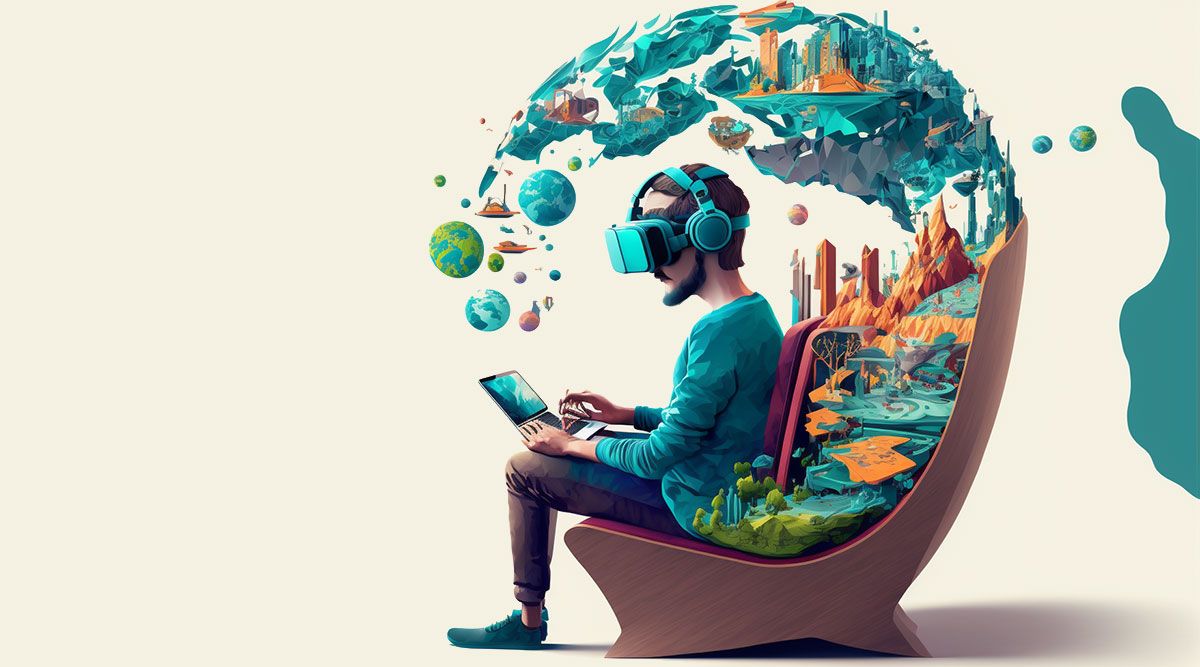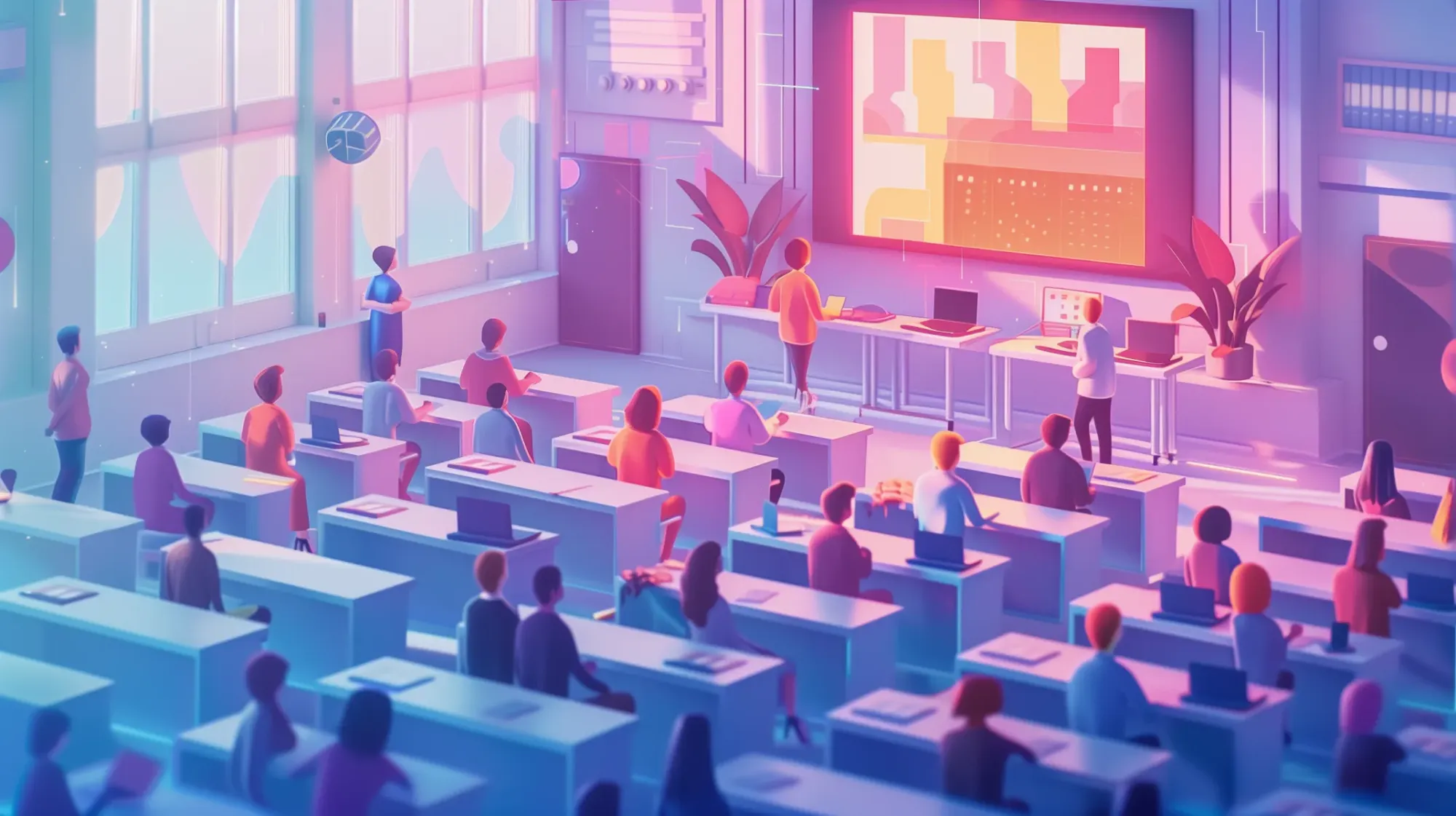ChatGPT is a Paradigm Shift; why Education Should Embrace It

ChatGPT has taken the world by storm, even for me, a futurist, the impact and adoption rate of ChatGPT surprised me. It has also completely disrupted the educational system in many countries. Students worldwide have flocked to the advanced tool to outsource their homework to AI so that they can focus on the more important things in their lives; playing games, making/watching TikTok movies or playing outside (hopefully).
Some teachers, professors and school management try to block access to ChatGPT. In Australia, NSW and Queensland schools have announced a ban of ChatGPT in public schools. Also, the New York City Department of Education announced blocking ChatGPT, and there are likely countless more schools that try to ban this technology. Schools trying to ban the wildly popular chatbot are missing the boat, and they will soon be flooded with many other technologies with similar capabilities. It is a useless attempt to stop the future from infiltrating the systems they have created.
With the rise of (Generative) AI, schools and universities will have to adapt to the new reality. The technology will evolve faster than teachers, professors, and school management can anticipate, and students will always find new ways to incorporate the latest technologies.
After all, the world is evolving faster than our educational system can cope with. Rather than banning the latest technology, the education industry should embrace it. Unfortunately, they resort to the most primitive approach they can think of; banning access to a tool that is actually useful. The question is, of course, why?
The answer is simple.
In the past 100 years, the world might have drastically changed, but the way we teach our children remains exactly the same as 100 years ago; a large group of kids in a classroom, sitting forward-facing, listening to a teacher who explains something, gives an assignment or has a discussion with the students. The focus is on obtaining knowledge, most of which is available with the click of a button. This is no longer sufficient in a world so fundamentally different than at the start of the Industrial Revolution.
Society’s Most Important Task
Teaching children is the most important task if we want to advance our society; after all, children will be the innovators of tomorrow. The fact that we have not innovated our teaching methods in the past 100 years while having all these technologies available is remarkable to me. We stick to the old paradigm of teaching children traditional subjects in a traditional way, most of which will become useless before the end of this decade.
In addition, research has shown that passive teaching methods are ineffective in transferring knowledge. The least effective method is a lecture. Long-term retention rates of the knowledge shared in a typical lecture where the teacher stands in front of a class and talks are around 5 per cent while reading about a topic only marginally improves the retention rates to 10 per cent. However, participatory teaching methods drastically improve memory retention rates, with group discussions bringing it to 50 per cent and learning by doing to 75 per cent. Hearing and reading can be useful in some use cases, but the best would be to learn by doing, and that is where augmented reality (AR) and virtual reality (VR) come into play. After all, practice makes perfect.
Changing How We Teach
Imagine a history teacher that offers hyper-realistic classes in virtual reality combined with a discussion with the group while experiencing Ancient Rome in virtual reality. It would allow students to actually go into a virtual environment, interact with the teacher and fellow students, pause or play back a scene or session, change it on the fly depending on how the discussion goes and notice new things every time they visit or replay a scene. It would allow the children to experience a new environment in a safe and controlled environment and explore knowledge from a different perspective while being fully engaged.
We could teach children the world of quantum mechanics by literally stepping into the microscopic world or showing the effects of climate change on any environment. The potential is endless, resulting in a fun learning environment and the best ratings for the teacher and school.
Moreover, celebrity teachers can teach millions of kids simultaneously in an immersive environment as long as the required hardware becomes available to as many children as possible.
Changing What We Teach
The method of teaching is only one thing that should change. Nowadays, we have tools in our pockets that have all the knowledge of the world easily accessible, which it can also deliver in a format that works very well for humans. We can now have a dialogue with AI to better understand what we are looking for and better understand the answers that are returned. This requires an entirely different skill set than understanding how to find something on Google.
We should also remember that this generative AI movement is not only about text or code as delivered by Chat GPT. It is also images, audio, music, voices, 3D assets and entire 3D worlds; anything digital can and will be created with AI, delivered in a format that works best for us.
We can now create a synthetic future, and we need to understand how to deal with this new future. In the years to come, the technological advancements, and the tools at our disposal, will only get better (or worse, for that matter; after all, technology is neutral, and it is up to us how we apply it).
As such, what we teach should also drastically shift from learning knowledge that is readily available to teaching our kids the research and analytical skills required to survive in this rapidly changing and digitalizing society. We should teach them how to form an opinion and self-educate, be adaptive and deal with rapid change, and use and apply technology (responsibly) by teaching them programming, robotics, and ethics.
Education Should Embrace Technology
As a society, we must understand new technologies and how to deal with them. That starts with our children. Therefore, trying to forbid these technologies is not an option because how will we prepare our children for this synthetic future?
Instead, we should embrace the latest technology, from AI coaching to virtual and augmented experiences, to prepare our children for a world that will look fundamentally different by the time they finish school.
That means if AI can now pass an MBA exam, a bar exam or medical school exams, it is time to rethink these exams. Instead of banning the technology, we should ask different questions that embrace this technology.
Especially since ChatGPT has shown us that this new synthetic world - created, driven, and managed by artificial intelligence - is much closer than many of us would have thought. In fact, some researchers argue that the singularity, or when artificial general intelligence (AGI) appears, is only seven years away. While that might be true or not, the clock is ticking, and there is no time to waste in changing how we educate.
Final Thoughts
In 2019, I already discussed that AI would change how we learn. Now it is time to put this into practice. Personalised learning, AI coaching, adaptable immersive content, hyper-realistic role-playing games with artificially intelligent NPCs (non-playing characters), or synthetic humans, are the only way forward for our education system. Continuing to teach our children, as well as our employees, as we have done for over a century, is no longer sufficient.
The educational system needs to reform and embrace the latest technologies to prepare students for the future that will look fundamentally different only five years from now. That change should start today. We should give them the gift of digital literacy instead of banning the future from school.
Image: Midjourney





